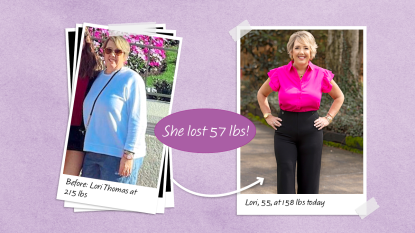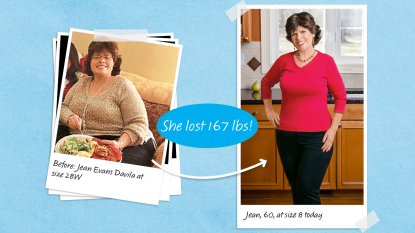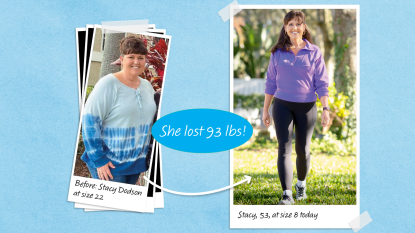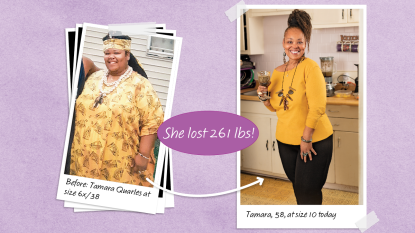Fight Diabetes and Lose Weight with a Flexitarian Diet
Want to eat less meat but not ready to go full-vegetarian?

Have you been considering giving up meat? Well, if you’re not totally ready to board the veggie train, we don’t blame you. However, recent research has shown that a plant-based diet can have major benefits for your health. Luckily, there are ways to easily start incorporating more veggie-rich meals into your life without having to completely give up the foods you love. Enter: the flexitarian diet.
As you might imagine, flexitarian is meant to describe a flexible vegetarian diet, meaning that you mostly eat vegetarian with some allowed flexibility to eat animal products. The flexitarian diet was developed by dietitian Dawn Jackson Blatner who aimed to help people reap the benefits of a vegetarian diet without having to totally give up meat.
Since it doesn’t really have any specific rules for calorie-counts, macronutrients, or portion sizes, the flexitarian diet is more of a lifestyle change. It simply emphasizes eating mostly vegetables, fruits, and whole grains, getting your protein from plant sources (like pea protein or protein from beans and legumes), eating mostly natural, unprocessed whole foods (rather than packaged foods), limiting added sugar, and of course, incorporating animal foods in moderation.
In Blatner’s book, The Flexitarian Diet ($16.76, Amazon), she gives more details about how to reduce your meat consumption and advises on how much meat exactly you can allow on the plan. For example, you can have up to 28 ounces of lean meat or poultry per week when you’re first starting out. But as you start to add more vegetarian dishes to your menu, you should try to get down to as little as three ounces of meat up to three times a week.
Research has shown that eating a plant-based diet can benefit your health in more ways than one. One review of studies found that eating a flexitarian or a semi-vegetarian diet (SVD) had positive effects on body weight, metabolic health, blood pressure, and even reduced the risk of type 2 diabetes!
Results from multiple studies suggest that those who eat a plant-based diet lose more weight than those who don’t. At the same time, another review of studies found that those eating a plant-based diet lost up to 4.5 more pounds over an 18-week period than those who didn’t.
What’s more, eating a flexitarian diet may reduce your risk of diseases like cancer and type 2 diabetes. Plant-based diets are loaded with nutrients and antioxidants that can help prevent cancer. One study including 69,120 participants found that those who ate plant-based had an overall lower risk of getting cancer, while other research found that specifically, colorectal cancer risk was significantly reduced with this eating style.
When it comes to managing your blood sugar, a flexitarian diet could help with that, too. Plant-based diet plans often include a lot of fiber, and more fiber in one’s diet has been linked to lower (and more stable) blood sugar levels. What’s more, another study showed the flexitarian diet to help lower the overall risk of type 2 diabetes in subjects when compared with non-plant-based diets.
So if you’re ready to start on a more plant-based eating plan to boost your health and maybe drop some pounds, not to worry, it’s not as daunting as going full vegetarian. Plus, there are so many delicious food options and recipes to choose from! Check out some of our favorite plant-based food swaps here.
Here’s to better choices and better health in 2020!
This article originally appeared on our sister site, First for Women.













